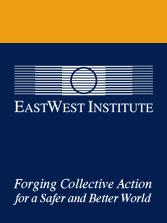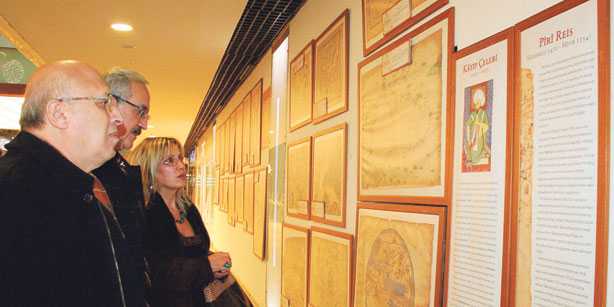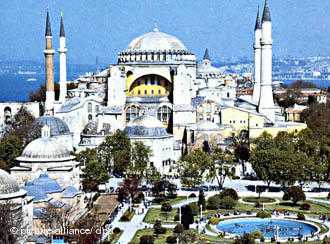Reuters – Worshippers light candles after attending a weekly mass at Sacred Heart Catholic Church in Baghdad October …
By Tom Heneghan, Religion Editor Tom Heneghan, Religion Editor –
Thu Oct 7, 6:26 am ET
PARIS (Reuters) – With Christianity dwindling in its Middle Eastern birthplace, Pope Benedict has convened Catholic bishops from the region to debate how to save its minority communities and promote harmony with their Muslim neighbors.
For two weeks starting on Sunday, the bishops will discuss problems for the faithful ranging from the Israeli-Palestinian conflict and strife in Iraq to radical Islamism, economic crisis and the divisions among the region’s many Christian churches.
They come from local churches affiliated with the Vatican, but the relentless exodus of all Christians — Catholics, Orthodox and Protestants — has prompted them to take a broad look at the challenges facing all followers of Jesus there.
While conditions for Christians vary from country to country, the overall picture is dramatic. Christians made up around 20 percent of the region’s population a century ago, but now account for about five percent and falling.
“If this phenomenon continues, Christianity in the Middle East will disappear,” said Rev. Samir Khalil Samir, a Beirut-based Egyptian Jesuit who helped draw up the working documents for the October 10-24 synod at the Vatican.
“This is not an unreal hypothesis — Turkey went from 20 percent Christian in the early 20th century to 0.2 percent now,” he told journalists in Paris. The Christian exodus since the U.S.-led 2003 invasion “could bleed the Church in Iraq dry.”
CALL FOR CHANGE
Instead of simply appealing for more aid to Catholics in the region, the experts who prepared the synod call for sweeping social changes to bring forth democratic secular states, interfaith cooperation and a rollback of advancing Islamism.
“At issue is the renewal of Arab society,” said Samir, who stressed most Christians and Muslims there are fellow Arabs.
Challenged by western-style modernity, many Middle Eastern societies have fused their Arab and Muslim identities, he said, narrowing religious freedom for non-Muslim minorities.
The working document stated: “Catholics, along with other Christian citizens and Muslim thinkers and reformers, ought to be able to support initiatives at examining thoroughly the concept of the ‘positive laicity’ of the state.
“This could help eliminate the theocratic character of government and allow for greater equality among citizens of different religions, thereby fostering the promotion of a sound democracy, positively secular in nature.”
The document pins most of the blame for the Christian exodus on political tensions in the region: “Today, emigration is particularly prevalent because of the Israeli-Palestinian conflict and the resulting instability throughout the region.”
It cited the “menacing social situation in Iraq,” where about half the estimated 850,000 Christians there in 2003 have since fled sectarian violence and persecution, and “political instability of Lebanon” as further factors driving them out.
The rise of political Islam since the 1970s, especially its violent variations, menaces the whole region, it added, saying: “These extremist currents, clearly a threat to everyone, Christians and Muslims alike, require joint action.”
CHRISTIAN COOPERATION
The region’s Christians have also been weakened by age-old splits. The Catholics are divided into Latin Catholic, Coptic, Maronite, Chaldean, Armenian, Syrian and Greek Melkite churches — and they are outnumbered by various Orthodox churches.
Protestants are also present, in older communities founded by colonial missionaries or in newer evangelical groups whose aggressive proselytizing — often backed by conservative U.S. churches — has provoked a backlash from Muslim authorities.
The synod document urges the sometimes competing Catholic churches to work with each other and with other Christians to make their voice heard in Middle Eastern society.
Its advice to open up to other churches and faiths, simplify their ancient liturgies and introduce more Arabic into their services echoes the Second Vatican Council reforms that worldwide Roman Catholicism launched back in the 1960s.
Highlighting this openness, the synod has invited an Iranian ayatollah, a Lebanese Muslim and a rabbi from Jerusalem to attend the proceedings and address the 250 participants.
“I don’t think people in the West appreciate to what extent the thematics of the synod are totally new to so much of the Church in the Middle East,” said Rev. David Jaeger, a Franciscan and leading Roman Catholic expert on the Middle East.
“The whole discussion of the civic duty of the Christian … is totally new for the region as a whole. For 13 centuries, Christians in the Middle East have been made to live in a kind of socio-economic ghetto,” he told Reuters Television in Rome.
As Samir summed it up: “If we can do something with other Christians, it is better than doing it alone. If we Christians can do something with the Muslims, that is even better.”
 A well-respected think thank in the U.S., the EastWest Institute (EWI), gave a 2011 Peace Prize to Fethullah Gulen.
A well-respected think thank in the U.S., the EastWest Institute (EWI), gave a 2011 Peace Prize to Fethullah Gulen.



